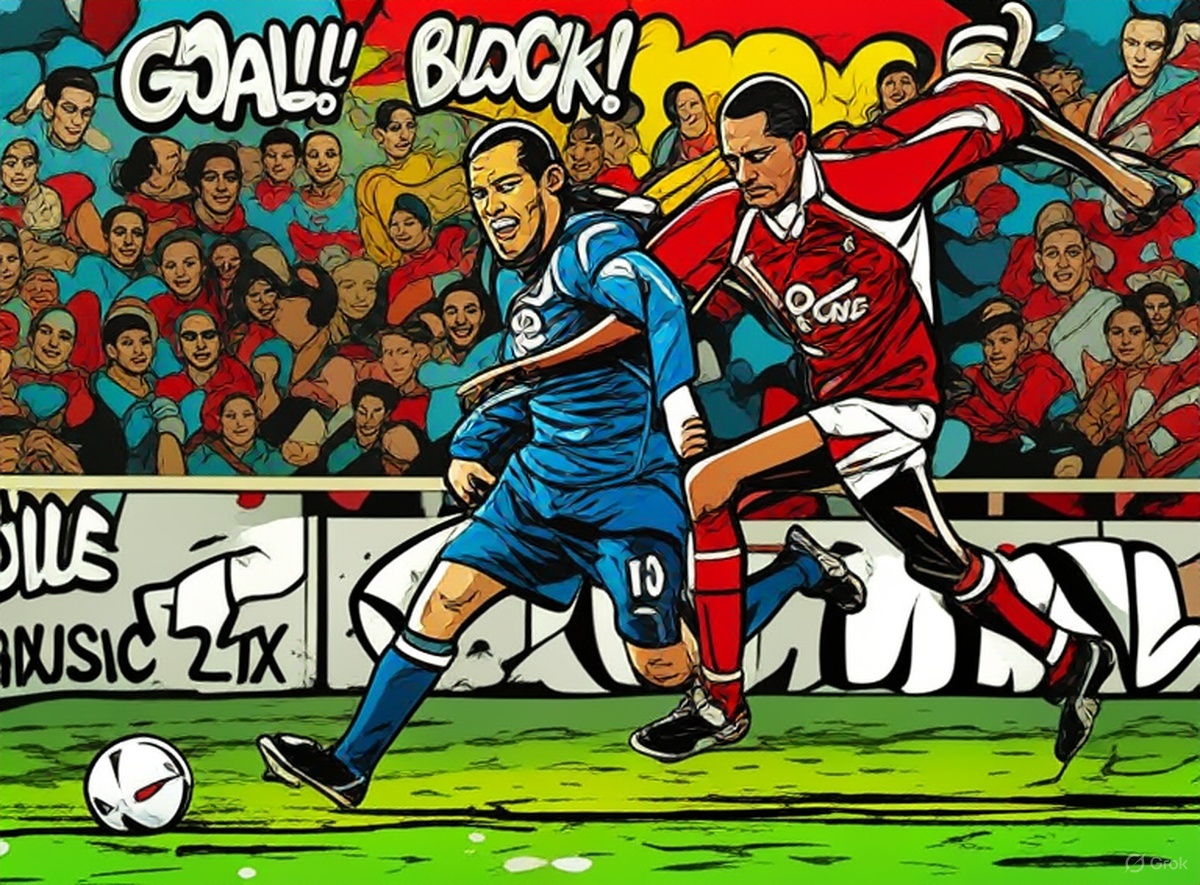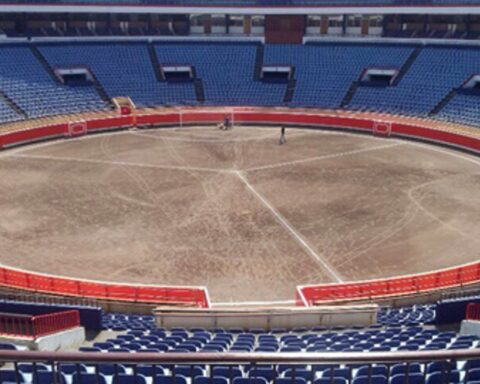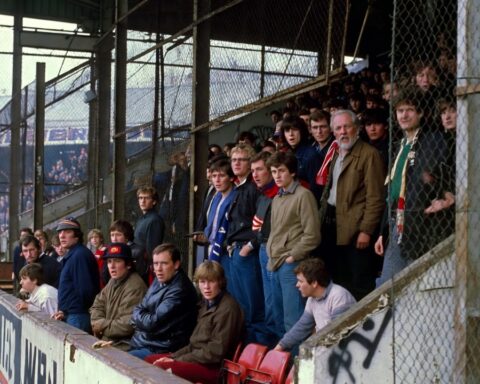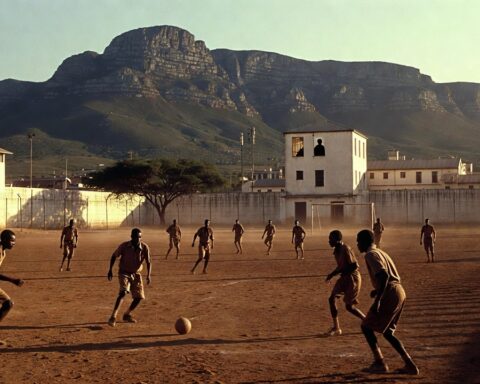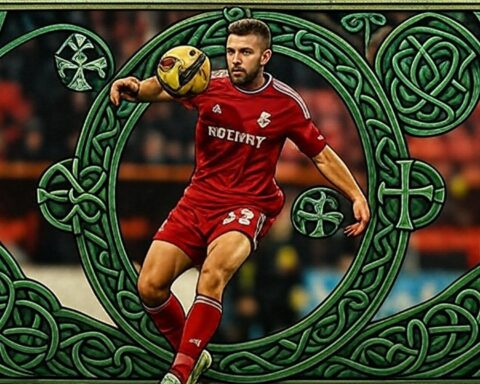It was a cold night in Wrexham. The kind of night where your breath fogs in front of your face like you’re exhaling ghosts and your boots crunch on the frostbitten grass like a fistful of gravel.
It was October 1st, 2002, and somewhere on that bitter pitch in North Wales, a 16-year-old goblin from Croxteth was about to make a mark on history—real history.
Not the myth. Not the made-for-TV highlight loop. No, this was Rooney before the canonisation. This was blood-and-guts football, the kind played with grimaces and old boots, long before brand deals and stadium chants.
We remember the Arsenal goal. Everyone remembers the Arsenal goal. Last-minute winner, top bins, Clive Tyldesley screaming bloody murder—“Remember the name!” like he’d just seen the second coming of George Best reincarnated into a stocky Scouse teenager.
But that was not the beginning. Not really. That was just when the sky opened up and the corporate gods came calling. That was the moment Nike got their hooks in him.
But two weeks before that, on a less glamorous night buried deep in the slop of the League Cup, Wayne Rooney had already kicked open the door.
Wrexham 0, Everton 3. The scoreboard doesn’t tell the story. You have to scrape the truth out from under the mud and sweat, dig through newspaper back pages and microfilm like some deranged archaeologist of forgotten greatness.
The headlines barely mention it. “Veteran Ferguson Leads the Line,” they say. “Youngster Rooney Gets a Brace,” like an afterthought, a quiet footnote in a match otherwise dead and buried in the annals of cup history. But there it is—two goals. His first. His real firsts.
You can almost hear the scene. A small stand of traveling Toffees, maybe a thousand strong, soaked to the bone and howling in that peculiar way only Scousers can—equal parts joy and menace.
Rooney was a creature born for that chaos, shaven-headed and sneering like he was forged in the furnace of 1980s Thatcherism. Not the accomplished player he would become, but a streetfighter with studs on.
Rooney, introduced as a sub to replace Thomas Radzinski just after the hour mark, scored his first senior goal in the 83rd minute, chasing a flick on before zipping a clean strike through the keeper’s legs with his right foot. Bang.
Then again, six minutes later. This time of his own making. He ran straight at a backpedalling centre-half, slalomed past him with dismissive ease and clipped another right-footed finish into the far corner.
You don’t fluke two goals at that age, on that kind of night. That’s not luck. That’s destiny peeking out from behind the curtain to test the light.
David Moyes knew. He wasn’t a sentimental man, but he knew what he had. He called him “special,” but even that word seems so neutered now—corporate-speak to mask the panic of unleashing something you don’t quite understand.
Moyes looked at Rooney and saw both salvation and chaos. He kept him on a leash, but the thing about leashes is they only work if the beast doesn’t realise how strong its neck is.
Rooney had been terrorising youth defences since he was 9. The stories from the Everton academy were whispered like folklore: goals from the halfway line, crunching tackles, the kind of footballing violence that made grown men wince. The Wrexham match was simply the first time the rest of the country got a glimpse of it.
But history is a funny thing. It chooses its landmarks the way a drunk chooses a jukebox song—loud, obvious, and often wrong.
We’ve all seen the Arsenal goal. The ball drops, he turns, he lashes it in from 30 yards, and suddenly the myth is born. Rooney becomes the youngest Premier League scorer at the time. Everyone loses their minds. Beckham raises an eyebrow. Ferguson picks up the phone.
But what we lost in that moment was the truth: that Wayne Rooney’s first senior goals came in the drizzling dark of a League Cup match most people didn’t even watch. Not Sky Sports. Not Match of the Day. Just the diehards and the drunks. And maybe that’s fitting.
Because Rooney, at his core, was never a polished gem. He wasn’t the next Maradona or Pelé or even Gazza. He was something else.
A mad dog in a meat market. A flailing elbow. A diving header into broken glass. His football was violent poetry, closer to Bukowski than Beckham. He was not built for statues or fairy tales. He was built for nights like Wrexham—ugly, real, and alive.
So why does nobody talk about it? Because it doesn’t fit the brand. There’s no clean highlight reel. No commentator screaming his name to the heavens.
Just a muddy pitch, a teenage mutant footballer with a shaved head, and two goals that mattered more than anyone knew at the time.
These were not just goals. These were declarations. Roars from the abyss. “I’m here,” they said. “And I’m not leaving.” He wasn’t supposed to peak then. But for those paying attention, that was the night the ground started to shake.
We can keep pretending Arsenal was the start. It’s a good story. It sold DVDs and filled nostalgia reels. But it’s not the truth. The truth is Wrexham. The truth is those 90 minutes in the League Cup.
That’s where it began. Not under the bright lights, but under the radar. In the mud. In the cold. Where real football lives. Where his genius was raw and unfiltered. Where the goals meant everything to no one but the people who were there.


